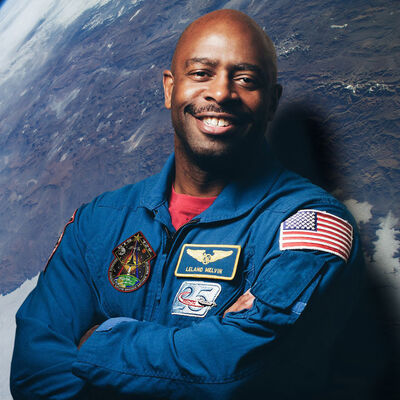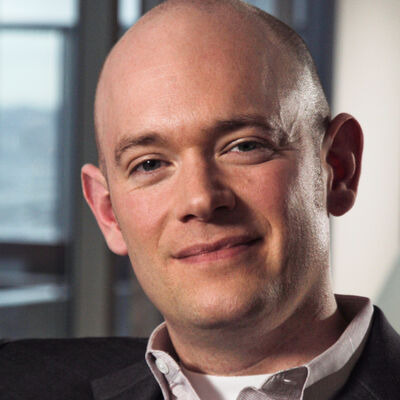Distinguished Fellow, Carnegie Mellon University’s College of Engineering

Vivek Wadhwa: Biography at a Glance
- Distinguished Fellow at Carnegie Mellon University’s College of Engineering and Director of Research at Duke University’s Pratt School of Engineering
- Author of "The Driver in the Driverless Car: How Our Technology Choices Will Create the Future," “The Immigrant Exodus: Why America Is Losing the Global Race to Capture Entrepreneurial Talent,” and “Innovating Women: The Changing Face of Technology”
- Globally syndicated columnist for the Washington Post
- Held appointments at Stanford Law School, Harvard Law School and Emory University
- Faculty member at Singularity University
Videos
Biography
Vivek's background is impressive -- an Entrepreneur, Academic, Author, Keynote Speaker wrapped into a wonderfully vibrant and charismatic package. His research is focused on the critical advances in robotics, artificial intelligence, computing, synthetic biology, 3D printing, medicine, and nanomaterials, and how these advances are creating disruptive changes for companies, industries, governments and the culture at large.
Vivek just rejoined Harvard as a Distinguished Fellow, Harvard Law School, Labor, and Worklife Program, where he will help lead a critical three-year research project on the effects of technology on future employment and work. This will be the first study on how technology will affect the core foundations of our economy.
He is also currently a Distinguished Fellow at Carnegie Mellon University's College of Engineering, he teaches on CMU's Silicon Valley campus about the latest exponential technologies; technology convergence and industry disruption; risks and regulation; and the new rules of innovation. Vivek was also a Director of Research at Duke University's Pratt School of Engineering, Vice President of Innovation and Research at Singularity University, and Fellow at Stanford University's Rock Center for Corporate Governance, Harvard Law School, and Emory University. Remarkably, he has held as many as six simultaneous appointments at top universities.
Vivek's syndicated column for The Washington Post is one of the world's most popular columns on all things technology and innovation. His newest bestselling book is Your Happiness Was Hacked: Why Tech Is Winning the Battle to Control Your Brain--and How to Fight Back. Previous books include the award-winning,The Driver in the Driverless Car: How Our Technology Choices Will Create the Future, he also wrote The Immigrant Exodus: Why America Is Losing the Global Race to Capture Entrepreneurial Talent, which was named by The Economist as a Book of the Year of 2012, and Innovating Women: The Changing Face of Technology, for which the Financial Times named him #2 on its global list of the top ten men worth emulating.
This talent for communicating the complexities of global technological advancements in simple, almost poetic ways have made Vivek one of the most in-demand keynote speakers in the world. He gives more than 100 talks every year to the most prestigious and powerful audiences, including world leaders, CEOs, industry organizations, universities, entrepreneurship groups, and a multitude of national science and engineering academies.
He started his career as a software developer and gained a deep understanding of the challenges in building computer systems. His experience as Vice President of Information Services at investment banking powerhouse CS First Boston (CSFB), spearheading the development of technology for creating computer-aided software-writing systems, was so successful that CSFB decided to spin off that business unit into its own company, Seer Technologies. As its Executive Vice President and Chief Technology Officer, Wadhwa helped grow the nascent startup into a $118 million publicly traded company.
The explosive growth of the Internet afforded Vivek with an even greater opportunity to help businesses adapt to new and fast-changing technologies, and founded Relativity Technologies. As a result of his vision, Forbes.com named Wadhwa a Leader of Tomorrow, and Fortune declared Relativity one of the 25 coolest companies in the world.
In 2012, the U.S. Government awarded Wadhwa distinguished recognition as an "Outstanding American by Choice", for his "commitment to this country and to the common civic values that unite us as Americans". He was also named one of the world's "Top 100 Global Thinkers" by Foreign Policy magazine in that year; in June 2013, he was on TIME's list of "Tech 40", one of forty of the most influential minds in tech; and in September 2015, he was second on a list of "ten men worth emulating" in the Financial Times.
Topics
There is a lot of pessimism about the future. Some people argue that, other than advances in computer-related fields, technological progress has actually stalled: the internal-combustion engine, invented in 1876, still rules our highways; the cancer death rate has barely changed since 1971; today’s Internet was actually designed in the 1960s. There are fears that world wars will break out over water and energy shortages and that our standards of living will fall.
These perceptions couldn’t be further from the truth.
Vivek Wadhwa will discuss why he believes that this will be the most innovative decade in human history. He will explain how exponentially advancing technologies—in fields such as robotics, A.I., computing, synthetic biology, 3D printing, medicine, and nanomaterials—will enable us to start solving humanity’s grand challenges.
These technologies will disrupt entire industries, provide opportunities to create new ones, and help solve humanity’s grand challenges. For example:
- 3D printing and robotics will enable manufacturing to return to the U.S.
- Advances in DNA sequencing and synthetic biology will make it possible to engineer drugs for the individual and create personalized stem cell lines.
- Autonomous, self-driving cars will revolutionize urban transport.
- Low-cost tablets and artificial-intelligence–based learning systems will change the teaching paradigm and bring education to the world’s masses.
- Star Trek–like tricorders, holodecks, and replicators will become a reality.
- These advances aren’t going to come from governments and large research labs but from small groups of motivated people. Wadhwa will give you a tour of the Star Trek future we are headed into.




